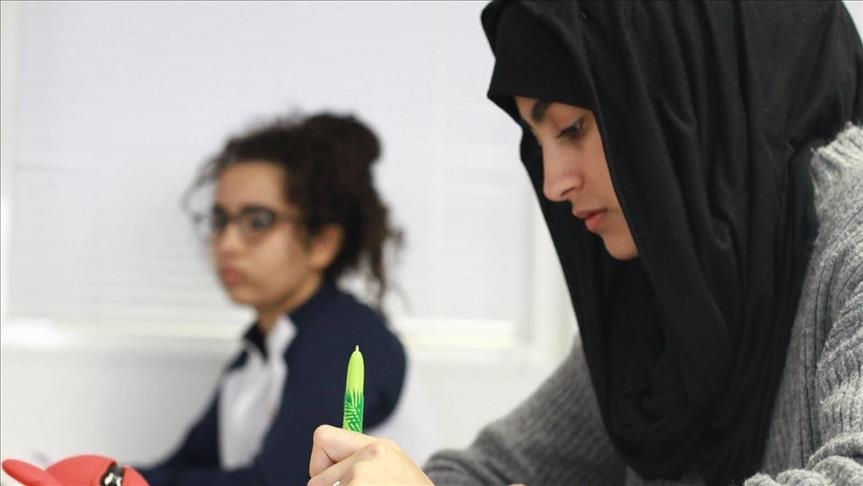Muslim schoolchildren in France often denied food options that fit their faith
Court ruling found offering alternate menu choices did not violate secularist principles, argue concerned parents in petition, saying their children often go hungry

PARIS, France
Although the subject gets little media coverage, the problem of food in French school cafeterias is a headache for many parents of Muslim students.
Citing their version of secularism, some mayors have decided not to offer alternative menus in school cafeterias.
This is the case in Tassin-la-Demi-Lune, a commune on the outskirts of Lyon, which since 2016 has mandated that only a single menu be offered for school meals.
And when the only meal offered is sometimes centered around pork, students who eat only halal or kosher – approved under Muslim or Jewish guidelines, respectively – have trouble getting enough to eat.
To get around this problem, some mayors have proposed an exclusively vegetarian menu, citing environmental concerns
These mayors have given the choice to parents with three possible menus: meat, fish, or vegetarian. The Grenoble City Hall asked parents to choose the menu they wanted, and 94% opted for fish or beef/chicken menus.
Children in those schools were able to choose their meals, unlike the situation created by other mayors who think that secularism means making Muslim and Jewish children either eat pork or go hungry.
Backlash from Muslim parents
Faced with a lack of empathy by mayors, parents in schools where pork is often the only choice launched an online petition to demand alternative menus.
They said that last December, the Council of State clearly ruled that proposals for alternative menus in fact do no undermine secularism or religious neutrality.
Moreover, it argued that "a single menu goes against the sense of history at a time when food waste is being criticized.”
“The unique menu, defended by the City Council in Tassin-la-Demi-Lune, hinders access to catering for 20% of students, whether for religious reasons, health, or belief (vegetarianism)," said the parents’ petition, adding: "The role of a mayor is to serve the population, all the population, in the name of the general welfare.”
Several well-known figures, including journalist and feminist activist Rokhaya Diallo, have lent support to the petition and encouraged others to sign it.
In France, Muslims are subjected to unrelenting attacks and exclusion amid an intensifying debate over the visibility of the community.
There is a question about the definition and concrete application of the principle of secularism. While some want to go further by prohibiting any "Muslim-related" visibility, others are looking to live and let live.
School dress codes
Among the hardliners, Eric Ciotti, the mayor of Nice, France’s fifth-largest city, and a presidential hopeful last year, wants to modify a 2004 law on religious symbols in schools to ban certain types of clothing, such as abayas – a long, free-flowing garment worn by Muslim women over their clothes.
Apparently referring to Muslim young girls who wear long skirts, he called allowing such clothing "a misuse of secularism.”
Some elected representatives in France apparently want to have "a clothing police" that will have the right to decide if attire is a religious dress.
For weeks, several French media outlets have charged that the abayas “violate secularism,” and so young girls should not wear them.
Many of the same outlets also believe that girls should not wear short skirts. In short, unlike Iran, which imposes the wearing of the veil, some in France try to impose "republican" clothes.
*Translated by Aurore Bonny.
Anadolu Agency website contains only a portion of the news stories offered to subscribers in the AA News Broadcasting System (HAS), and in summarized form. Please contact us for subscription options.







